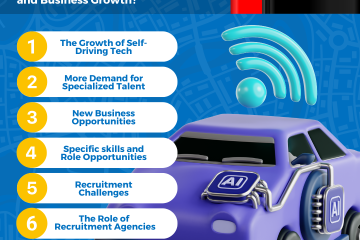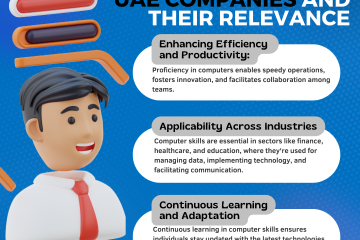A new report from Google shows that worldwide, 87 percent of decision-makers expect cloud computing to become an important driver of revenue growth by 2029. Consequently, Silicon Valley Associates Recruitment, an IT recruitment agency in Dubai has seen an increasing demand for professionals with cloud computing skills.
Tech recruiters in Dubai expect the Cloud Computing Industry to become the dominant enterprise in the IT environment. The UAE government invested aggressively in cloud computing which signals the continual expansion of the Cloud and the ICT sector in the years ahead. Also, an increasing number of tech-savvy business and industry leaders recognize the many benefits of the cloud computing trend.
What is Cloud Computing?
Cloud Computing is the on-demand availability of computing resources such as data and applications being stored and run on the cloud instead of being stored or executed on your personal computer or any other hardware that you may own.
In Cloud Computing, services are accessed remotely through a network of servers maintained by a third-party provider. It is an ideal choice for companies looking to transform themselves, migrate their applications, and accelerate innovation.
The advantages of using Cloud Computing in an organization are truly numerous. In this article SVA Recruitment will highlight 10 advantages of Cloud Computing any organization can enjoy.
- Scalability and Flexibility
Now, you don’t have to guess your infrastructure capacity needs. Making a capacity decision prior to deploying an application leads to either expensive idle resources sitting on or dealing with limited capacity. With cloud computing, you don’t have to worry about these. Due to the architecture of Cloud Computing, it is easy to grow and shrink the number and size of servers based on the need, scaling services up or down of their free will.
This is an awesome benefit as businesses can alter plans due to fluctuation, especially for companies experiencing sudden growth in demand.
- Collaboration
Enterprises can access Cloud Services from anywhere. Instead of being tied to a location or specific device, people can access data from anywhere in the world from any device—as long as they have an internet connection. Work is saved automatically, so everyone always has the latest version. Furthermore, enterprises can reduce the time to make resources available to developers from weeks to just minutes. This makes collaboration between members faster and more convenient.
- Efficiency
It will be a lot easier for a company to test new ideas and design new applications without hardware limitations or slow procurement processes. Enterprises can develop new applications and rapidly get them into production without worrying about the underlying infrastructure. New instances can be spun up or retired in seconds allowing developers to accelerate development with quick deployments.
This results in a dramatic increase in agility for the organization since the cost and time it takes to experiment and develop is significantly lower. This means that enterprises can provide lower latency and a better experience for their customers at minimal cost.
- Security
Companies are often worried about data security. With Cloud Computing, enterprises can now have better security. Cloud providers’ security teams are known as top experts in the field, they have embedded wide and deep security mechanisms into their cloud services. RapidScale claims that 94 percent of businesses saw an improvement in security after switching to the cloud.
- Cost-effective
Nearly 90% of companies expect cost savings on the cloud, according to a recent study of more than 500 IT decision-makers in the UAE by YouGov.
With the scalability feature of Cloud Computing, enterprises would only need to pay for the computing resources they use and how much they consume. They also don’t need to overbuild data center capacity to handle unexpected spikes in demand or business growth, and they can deploy IT staff to work on more strategic initiatives.
- Data loss prevention
Cloud Computing offers data backup and disaster recovery features. In case of emergencies such as hardware malfunction, malicious threats, or even simple user error, Cloud Storage prevents data loss. Cloud computing makes data backup, disaster recovery, and business continuity easier and less expensive because data can be mirrored at multiple redundant sites on the cloud provider’s network.
- Strategic Value
Cloud computing offers a competitive edge over your competitors. Enterprises can get access to the latest applications anytime without spending time and money on installations. Because Cloud Providers stay on top of the latest innovations and offer them as services to customers, enterprises can get a higher return on investment- than if they had invested it in soon-to-be-obsolete technologies.
- Prediction ability
Data analytics deserves more consideration. Cloud computing has accomplished more powerful predictive analytics than other technologies. As more and more businesses extend the power and intelligence of the cloud to the edge, we can expect to see better real-time predictions, faster responses, and more seamless customer experiences.
- Outsource Management
Organizations have tech talents managing computing infrastructure. On-site data centers typically require a lot of “racking and stacking”—hardware setup, software patching, and other time-consuming IT management chores. Cloud computing removes the need for many of these tasks. Companies now do not need to worry about data management as well as upgradation. IT teams can spend time on achieving more important business goals.
- Quality Control
There are a few things as detrimental to the success of a business as poor quality and inconsistent reporting. In a cloud-based system, all documents are stored in one place and in a single format. With everyone accessing the same information, you can maintain consistency in data, avoid human error, and have a clear record of any revisions or updates. Conversely, managing information in silos can lead to employees accidentally saving different versions of documents, which leads to confusion and diluted data.
In conclusion, cloud computing has revolutionized the way organizations and people alike store, access, and use data and applications. The cloud delivers more flexibility, reliability, increased performance, efficiency, and security and helps to lower IT costs. It also improves innovation, allowing organizations to achieve faster time to market and incorporate AI and machine learning use cases into their strategies. These primary benefits can also translate into other related benefits that can help to boost productivity, support remote workforces, and improve operational efficiency.
SVA Recruitment has several Cloud Computing professionals who can help your company transition to the Cloud.
Don’t miss the benefits Cloud Computing has to offer. Browse our skilled candidates here: www.svarecruiment.com/current-candidates.


